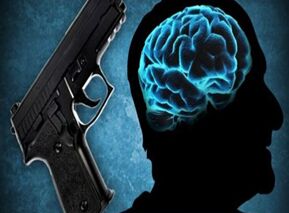美国的杀人犯,也爱说自己有精神病……
|
A familiar pattern plays out after every mass shooting in the US. First, advocates of gun control point out, accurately, that taking guns off the streets and limiting who can buy them will save lives. Then opponents of gun control argue that there are no regulations that can stop a determined shooter and that what we really need is to address mental health.
"This is also a mental illness problem," President Trump said, following the script, after shootings in Dayton and El Paso. "These are people that are very, very seriously mentally ill." "Mental health is a large contributor to any type of violence or shooting violence," Texas Gov. Greg Abbott agreed. Then liberal gun control advocates insist they too want better mental health care and that Republican gun control opponents are hypocrites because they oppose expanding access to health insurance that would help people get it. But the convenient cries of "mental health" after mass shootings are worse than hypocritical. They're factually wrong and stigmatizing to millions of completely nonviolent Americans living with severe mental illness. Abbott is wrong: the share of America's violence problem (excluding suicide) that is explainable by diseases like schizophrenia and bipolar disorder is tiny. If you were to suddenly cure schizophrenia, bipolar, and depression overnight, violent crime in the US would fall by only 4 percent, according to an estimate from Duke University professor Jeffrey Swanson, a sociologist and psychiatric epidemiologist who studies the relationship between violence and mental illness. "People with mental illness are people, and the vast majority aren't any more of a risk than anyone else," Swanson says. That doesn't mean, he says, that we can't do more to identify people at risk of committing gun violence and prevent them from getting guns — particularly if they are a danger to themselves or others. But portraying mass shootings as a mental health problem misrepresents the evidence. |









